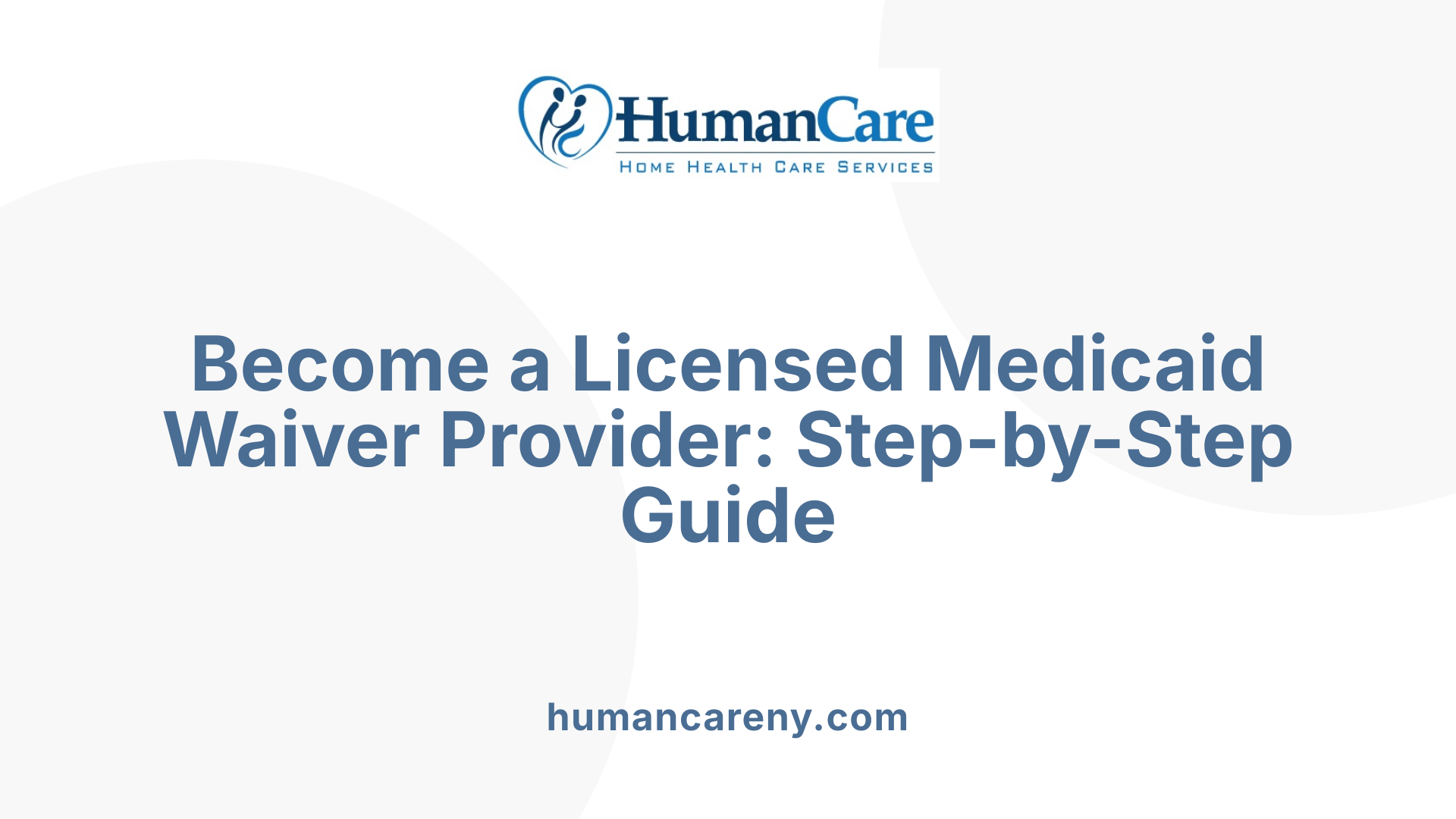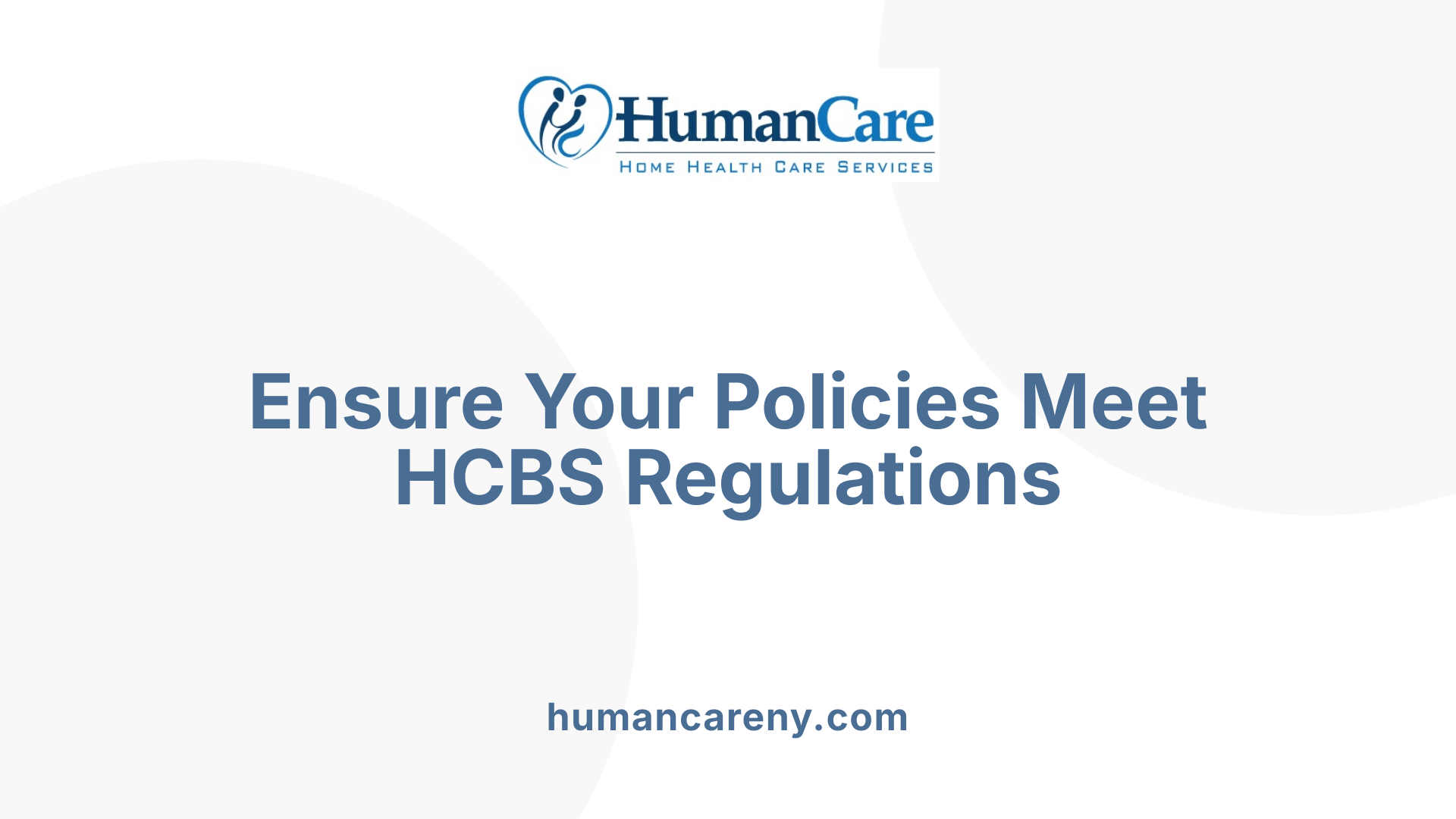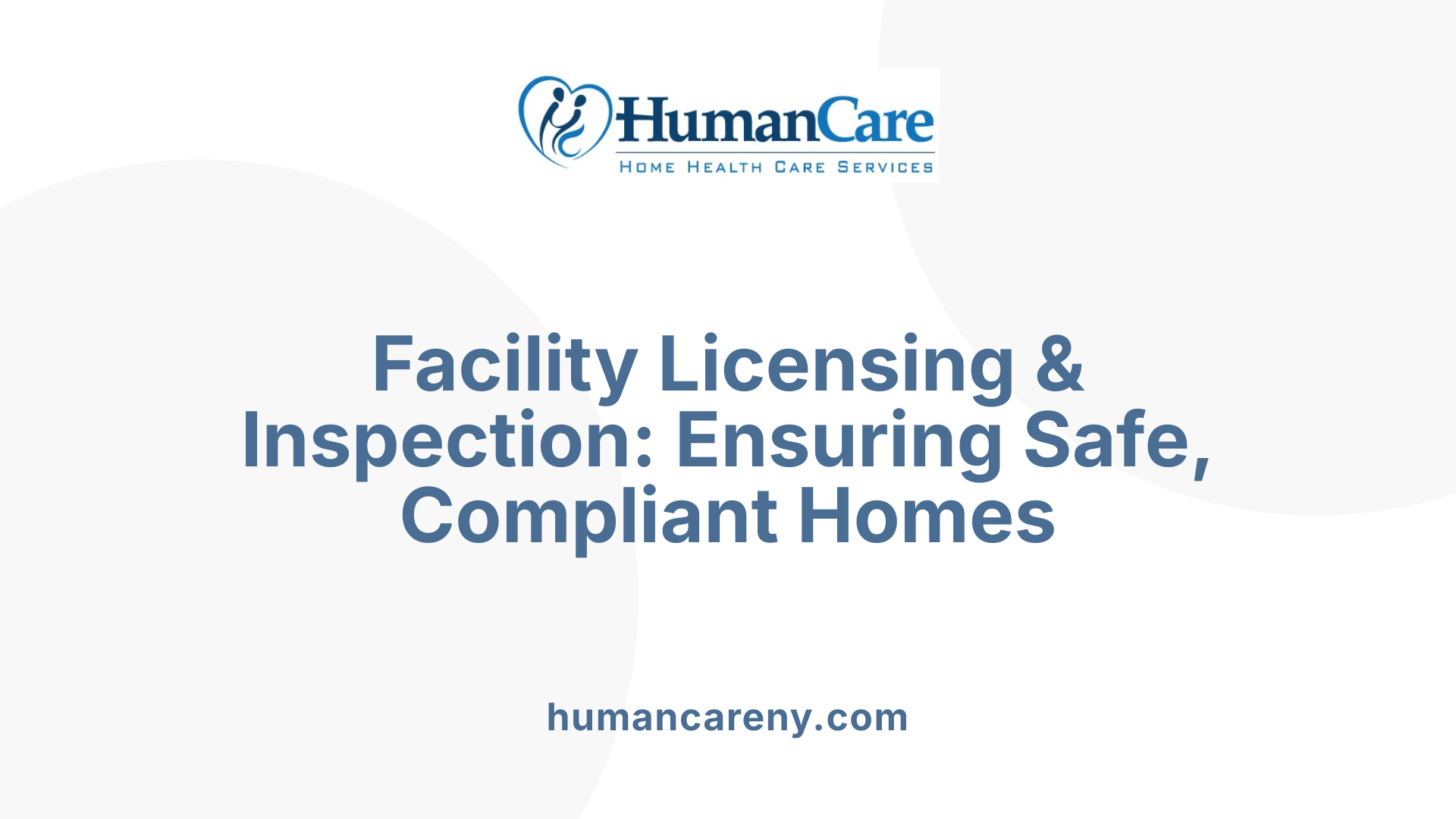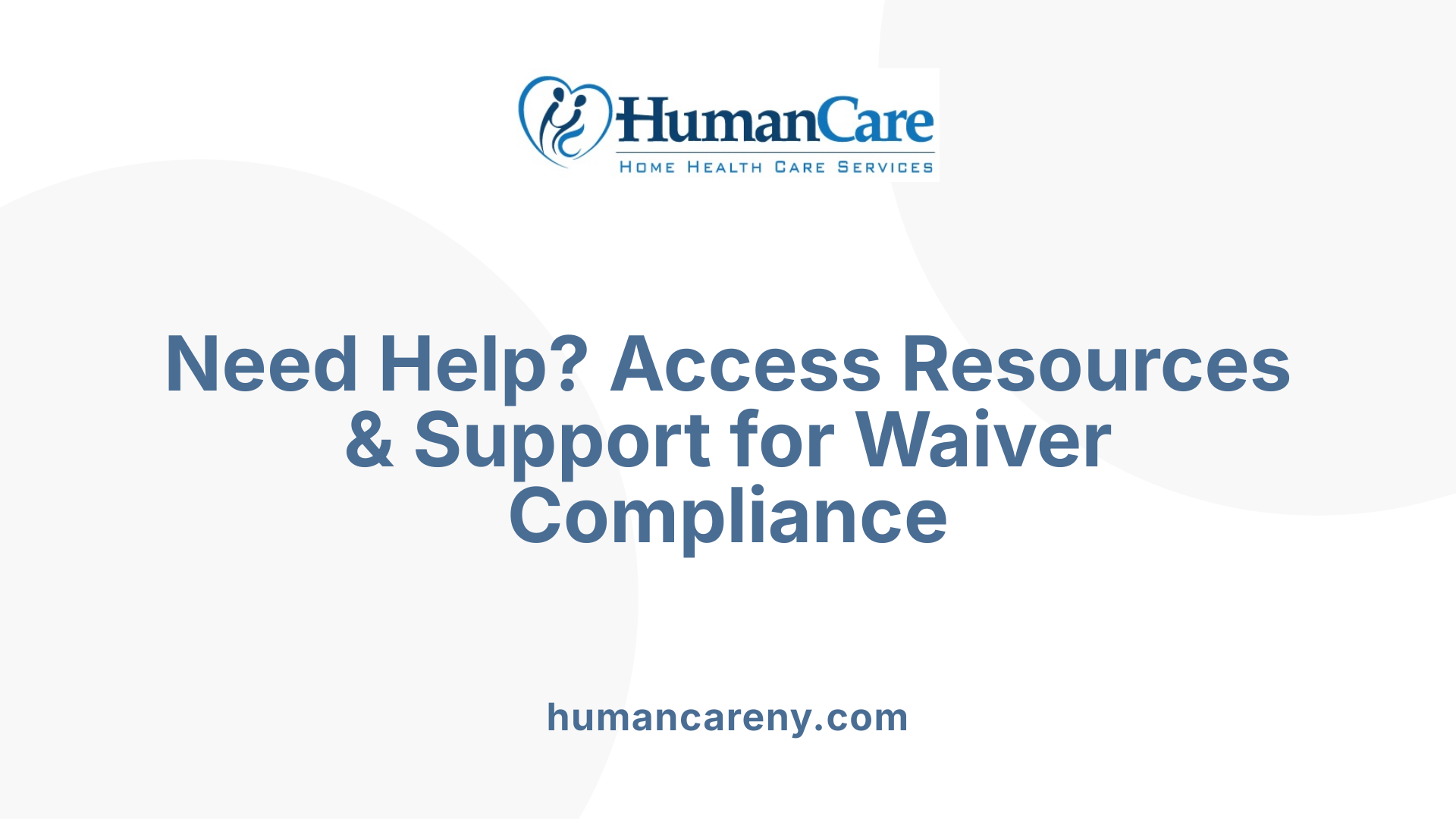Setting the Stage for Medicaid Waiver Programs
Medicaid Home and Community Based Services (HCBS) waivers are pivotal in allowing individuals who require institutional care to live in the comfort of their own homes or communities. These programs extend critical services tailored to diverse populations, including the elderly, persons with disabilities, and those with specialized medical needs. Understanding the provider requirements is essential for agencies aiming to deliver quality in-home care under these waivers. This article unpacks the Medicaid waiver provider criteria, application processes, and ongoing compliance obligations, empowering home health agencies and in-home care service providers to successfully navigate this complex landscape.
Overview of Home and Community Based Services (HCBS) Waivers
What are Home and Community Based Services (HCBS) Waivers?
HCBS waivers are Medicaid programs designed for individuals who require care that would traditionally be provided in institutional settings, such as nursing homes or hospitals. These waivers enable eligible participants to receive services in their own homes or community environments instead. Importantly, participants can benefit from both standard Medicaid offerings and additional support services customized through a Plan of Care (POC) tailored to their unique needs.
Populations Served by HCBS Waivers
Massachusetts operates ten specific HCBS waivers that target various populations. These include frail elders, adults with intellectual disabilities, children diagnosed with autism spectrum disorder, and individuals who have acquired or traumatic brain injuries. Each waiver is structured to address the particular needs of these groups, ensuring that participants receive appropriate supports that promote independence and quality of life outside of institutional care.
Range of Services Offered to Participants
The services provided through HCBS waivers cover a broad spectrum, aiming to support daily living and health maintenance at home or in community settings. Typical services include personal care assistance, homemaker services, transportation, respite care, home modifications, assistive technologies, and behavioral supports. These comprehensive offerings allow recipients to maintain community involvement and receive care that aligns with their medical and functional needs.
Eligibility Criteria for Waiver Participants
What are the eligibility requirements for HCBS waivers?
To qualify for Home and Community Based Services (HCBS) Waivers, applicants must meet both clinical and financial eligibility criteria. Clinically, individuals need to demonstrate needs that are equivalent to the level of care required in an institutional setting such as a hospital or nursing facility. This ensures that waiver services are provided to those who truly need extensive support but prefer to receive care at home or in a community setting.
Financial eligibility is another crucial aspect. Applicants generally must have an income below 300% of the Supplemental Security Income (SSI) Federal Benefit Rate and assets valued under $2,000. These financial limits help prioritize services for individuals who might otherwise face barriers to obtaining long-term care.
Documentation required for eligibility determination includes medical assessments showing institutional-level care needs, income statements, and asset verification. This paperwork substantiates the applicant’s clinical and financial status, enabling case managers and Medicaid to make informed decisions about waiver participation.
Together, these requirements ensure that HCBS Waivers are accessible to those who need support most, helping keep vulnerable populations safe and supported within their homes and communities.
Diverse Medicaid Waivers and Target Populations
What are the key Medicaid waivers available and who do they serve?
Massachusetts offers ten distinct Home and Community Based Services (HCBS) waivers designed to support a wide range of populations who need care typically provided in institutional settings. These waivers target groups including frail elders through the Frail Elder Waiver, adults with intellectual disabilities, children diagnosed with autism spectrum disorder, and individuals recovering from acquired or traumatic brain injuries with the Acquired Brain Injury (ABI) and Traumatic Brain Injury (TBI) waivers respectively.
Different types of HCBS waivers in Massachusetts
Among the notable waivers are the Moving Forward Plan (MFP) Waivers which help individuals transition from institutional to community settings. The Adult Supports Waiver also plays a significant role in supporting adults with various needs. Each waiver is carefully tailored to meet the clinical and supportive requirements of its target group, ensuring care is person-centered and community-based.
Examples of services relevant to home health providers
Home health agencies and in-home care providers play a crucial role in delivering services under these waivers. Services commonly include home health aide assistance, homemaker services, personal care, respite care, home modifications, transportation, assistive technology, and behavioral supports. These services are designed to enable recipients to live safely and independently in their community while receiving the necessary medical and personal support.
This diverse range of waivers and the tailored service offerings highlight Massachusetts’ commitment to providing support in familiar settings while addressing the specific needs of varied populations.
Steps to Become a Licensed Medicaid Waiver Provider

How does an agency become a licensed Medicaid waiver provider?
Becoming a licensed Medicaid waiver provider in Massachusetts involves several important steps to ensure eligibility and compliance with MassHealth requirements.
Business Registration and Tax ID Requirements
The first step is to register your business legally. This includes obtaining a Tax Identification Number (EIN), which is essential for tax reporting and financial transactions associated with Medicaid services.
Obtaining Liability Insurance
Providers must secure liability insurance to protect against potential claims related to service provision. This insurance is a mandatory part of the application and ensures coverage for unforeseen incidents involving clients.
Staff Qualifications Including Certifications and Background Checks
Staff members delivering direct care must meet strict qualifications. This involves obtaining necessary certifications pertinent to their roles and passing background checks, including CORI (Criminal Offender Record Information) reviews and fingerprinting. Professional licenses must also be verified where applicable.
Registration and Enrollment Processes
After meeting these prerequisites, agencies complete the MassHealth Provider Enrollment Application. This submission includes proofs such as insurance certificates, staff credential documentation, and policies related to client care and safety. Providers often apply through designated online portals or by contacting specific organizations designated by Medicaid.
Once approved, providers receive a MassHealth Provider Number and may be required to attend training before beginning service delivery. Ongoing compliance involves maintaining documentation, performing regular staff training, and preparing for audits.
This thorough process ensures that only qualified and prepared agencies deliver Home and Community-Based Services (HCBS) to eligible individuals under Medicaid waivers.
Developing Policies and Operational Procedures for Compliance

What policies and procedures must providers prepare to comply with waiver requirements?
Providers participating in HCBS waivers must establish comprehensive policies and procedures to meet regulatory compliance and deliver quality care.
Client assessment and documentation standards
Providers need formal protocols for regular and thorough client assessments. These assessments help tailor services to individual needs and must be accurately documented. Documentation ensures continuity of care and supports audits.
Incident reporting obligations
Clear procedures for reporting incidents, such as accidents or unusual occurrences, are essential. Timely and detailed incident reports protect client safety and fulfill state and federal requirements.
Staff training requirements
Providers must implement ongoing staff training programs covering care techniques, safety policies, and regulatory compliance. Training guarantees that personnel remain knowledgeable, competent, and certified as needed.
Client rights and grievance mechanisms
Policies must safeguard client rights, including privacy, informed consent, and respectful treatment. Additionally, grievance procedures enable clients and their families to raise concerns promptly and have them addressed fairly.
Together, these policies ensure providers maintain high standards, demonstrate accountability, and comply fully with Massachusetts HCBS waiver program regulations.
Application Process and Required Documentation
What is involved in the application process to become a Medicaid waiver provider?
To become a licensed Medicaid waiver provider in Massachusetts, agencies must start by completing the MassHealth Provider Enrollment Application. This form serves as the official request to participate in Home and Community-Based Services (HCBS) programs under MassHealth.
Along with the application, providers are required to submit various supporting documents, including proof of liability insurance to ensure financial responsibility, staff certifications confirming that personnel meet qualification standards, and verification of background checks such as CORI and fingerprinting for direct care staff. These documents demonstrate that the agency complies with safety and professional standards.
Another essential submission involves operational policies that cover client assessment, documentation, incident reporting, staff training, client rights, and grievance procedures. Having detailed and well-developed policies ensures smooth, compliant service delivery once the provider is enrolled.
Accuracy and completeness in the application and supporting documentation are paramount. Incomplete or inaccurate submissions can lead to delays or denial of the enrollment. Providers are advised to review all materials carefully before submission to facilitate a timely approval process.
Facility Compliance: Inspections and Licensing for Residential Providers

What inspections and licensing are required for facilities providing waiver services?
Facilities that provide residential or facility-based services under Medicaid HCBS Waivers in Massachusetts must meet rigorous state inspection standards. These inspections focus on health and safety compliance to ensure that the environment is safe and supportive for residents requiring home and community-based services.
ADA compliance is a critical part of these inspections. Providers must ensure their facilities accommodate individuals with disabilities, meeting federal requirements for accessibility. This includes physical access to the building, appropriate modifications, and supportive infrastructure for persons with mobility challenges.
Licensing requirements are mandatory for all residential or facility-based service providers. Facilities must hold valid state licenses confirming that they meet all health, safety, and ADA standards. Maintaining these licenses involves periodic renewal and adherence to updated regulatory standards to maintain eligibility to serve Medicaid waiver populations.
This rigorous compliance framework protects vulnerable populations and ensures a high quality of care within home and community-based care environments.
Post-Approval Responsibilities: Maintaining Compliance and Quality

What obligations do providers have after receiving waiver program approval?
Once a provider gains approval to offer Medicaid waiver services, they are assigned a MassHealth Provider Number, essential for billing and official recognition. Before beginning service delivery, attending required trainings ensures providers understand program guidelines and expectations.
Maintaining staff qualifications is critical. Providers must ensure ongoing certification renewals, conduct periodic background checks, and uphold professional licensing standards. This ensures the workforce remains competent and compliant with regulations.
Establishing thorough client intake and billing procedures is necessary for seamless operations. Providers need clear processes for enrolling clients, documenting services, and submitting accurate claims to MassHealth for reimbursement.
Finally, providers must prepare for regular audits and monitoring activities. These reviews assess compliance with policies, service quality, and regulatory requirements. Staying audit-ready helps maintain program integrity and continued eligibility to participate.
Through diligent attention to these post-approval responsibilities, providers contribute to sustaining high-quality care for individuals relying on Home and Community-Based Services (HCBS) waivers.
Support Resources for Providers Navigating Waiver Requirements

Are there consulting resources available to assist providers with Medicaid waiver program requirements?
Yes, provider agencies navigating the complexities of Medicaid waiver programs can access specialized consulting resources. Organizations such as the Waiver Consulting Group offer tailored support services, including assistance with application preparation, development of organizational policies, and ongoing compliance monitoring.
How do consulting services help providers during the application and compliance process?
Consultants guide providers through the detailed requirements of the MassHealth Provider Enrollment Application and ensure that all necessary documentation—such as proof of insurance, staff certifications, and policies—is completed accurately. They also assist in establishing procedures for staff background checks, incident reporting, and client rights.
What training opportunities exist to support providers?
Post-approval, providers often must complete training sessions to understand Medicaid regulations and service delivery standards. Consulting organizations frequently offer or facilitate these trainings, equipping staff with knowledge on compliance, billing procedures, and quality assurance.
What are the benefits of professional support in successful waiver enrollment?
Professional consulting services streamline the licensing process, minimize errors in applications, and prepare agencies for audits, thereby reducing delays and increasing the likelihood of successful enrollment. This expert guidance allows providers to focus on delivering quality care while maintaining compliance with regulatory standards.
| Support Aspect | Description | Provider Benefit |
|---|---|---|
| Application Assistance | Guidance through enrollment paperwork and requirements | Smooth and timely submission of applications |
| Policy Development | Crafting compliant organizational policies | Meets MassHealth and regulatory standards |
| Compliance Monitoring | Regular checks to ensure ongoing adherence | Avoids penalties and prepares for audits |
| Staff Training | Training on Medicaid rules and service provision | Enhances staff competency and quality of care |
Navigating the Path Forward with Confidence
Becoming a licensed Medicaid waiver provider involves mastering a multifaceted process that balances regulatory requirements with the compassionate delivery of home and community-based care. Providers must understand waiver eligibility, satisfy comprehensive application and documentation standards, and commit to rigorous compliance and quality assurance. Accessing support resources can ease this journey. Ultimately, well-prepared agencies expand access to vital services that empower vulnerable populations to live with dignity and independence in their own homes and communities.



